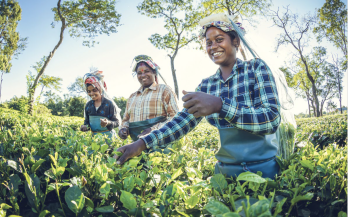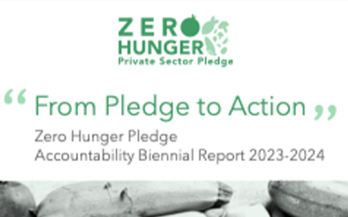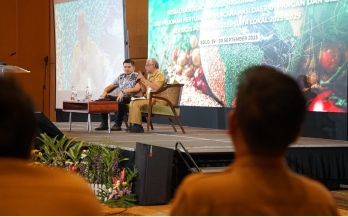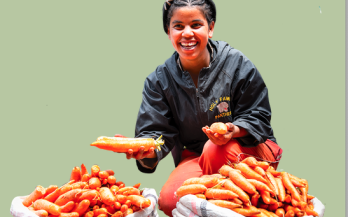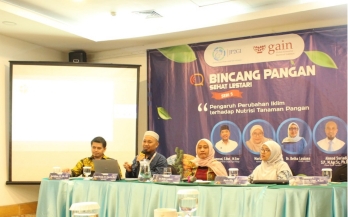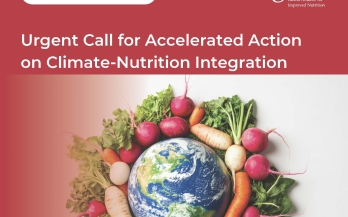- 21/11/2025
This White Paper makes the case for a territorial governance approach that reinforces urban–rural linkages by empowering local actors and enabling their collective agency. Local, traditional, and farmers markets serve as strategic hubs that offer multiple levers and diverse forms of capital for transforming food systems within cities, across urban–rural interfaces, and throughout wider territorial landscapes. Investing in both hard (physical) and soft (capacity-building) market infrastructure, supporting diverse knowledge systems, and advancing inclusive “whole-of-society” governance are essential steps toward unlocking resilient and sustainable food systems now and in the future. With these foundations in place, communities, governments, and sectors can routinely apply best practices and participate meaningfully in decision-making processes that foster a wide range of regenerative, biodiverse food value chains. Such systems create market and food environments characterized by vibrant public spaces; access to affordable, safe, culturally preferred, healthy diets; reduced and valorized food waste; and opportunities for dignified, prosperous livelihoods.
- 18/11/2025
Much of today’s headline news paint a grim picture — numerous crises unfolding alongside a sharp decline in global solidarity and the withdrawal of the private sector from net-zero commitments. The unity that inspired the 2030 Agenda for Sustainable Development a decade ago now feels increasingly distant.
Yet, the embers of that spirit, which imbued the launch of the Zero Hunger Private Sector Pledge in 2021, remain.
Community of Practice: Bringing together entrepreneurs for better food systems in Nigeria
As the world marks Global Entrepreneurship Week 2025 under the theme “Together We Build,” the SUN Business Network (SBN) Nigeria is taking a bold step toward strengthening collaboration among entrepreneurs driving change in the food system. With the recent launch of its website and Community of Practice, SBN Nigeria is creating a vibrant space where nutrition-focused businesses can learn, connect, and grow together. This milestone represents more than a digital achievement, it’s a movement toward building a community where shared ideas fuel innovation, partnerships inspire action, and entrepreneurs collectively shape a healthier, more resilient food system for Nigeria.
- 13/11/2025
GAIN’s contributions were made possible through the Nourishing Food Pathways programme, which is jointly funded by: German Federal Ministry for Economic Cooperation and Development; Ministry of Foreign Affairs of the Netherlands; European Union; government of Canada through Global Affairs Canada; Irish Aid through the Development Cooperation and Africa Division; and Swiss Agency for Development and Cooperation of the Federal Department of Foreign Affairs. The findings, ideas, and conclusions contained presented here are those of the authors and do not necessarily reflect positions or policies of any of GAIN’s funding partners.
The handbook is also supported by the Federal Ministry for Economic Cooperation and Development (BMZ) and Deutsche Gesellschaft für Internationale Zusammenarbeit (GIZ).
Why Climate and Nutrition Integration Matters?
Climate change is not just an environmental issue; it intersects with systemic multiple aspects of human life. It interlinks the Sustainable Development Goals (SDGs) which aim to end hunger and poverty, preserve the environment, and ensure prosperity. In practice, climate change worsens hunger and hidden hunger as its increasing disasters, declining agricultural harvest and productivity, and threatening crop nutrition.
Smallholder farmers are the backbone of our food systems. Through small-scale agriculture, they contribute to economic development, provide jobs and livelihoods, and ensure food security for millions. Yet, despite producing 70–80% of the world’s food, many smallholder farmers remain impoverished and food insecure.
Each year, agricultural productivity declines as climate change intensifies. Smallholder farmers are among the most vulnerable groups to climate change because they rely heavily on rain-fed agriculture, cultivate marginal lands, and often lack access to the technical and financial support that could help them invest in better agricultural practices.
Many governments and organisations are addressing this crisis through climate-smart agriculture training, funding drought-resistant crops, early warning systems, resilient technologies and financial services. However, one crucial aspect remains overlooked: the nutrition and well-being of the farmers themselves.
Organisations working closely with smallholder farmers, whether through direct employment or value-chain partnerships, often focus on productivity interventions such as inputs, finance, and market access. However, the nutrition and well-being of the farmers who make these systems thrive are mostly neglected.
World Children’s Day 2025 – 20th Nov
My Day, My Rights
GAIN strengthens school meals, supports local SMEs, and boosts access to nutrient-rich foods.
We empower children and youth as changemakers to build healthier, stronger communities.
On October 14, 2025, the 5th series of Bincang Pangan Sehat Lestari brought together experts, policymakers, and practitioners from government agencies and NGOs. The discussions focused on the impact of climate change on food crop nutrition.
For Immediate Release
Urgent Call for Accelerated Action on Climate-Nutrition Integration – Latest Assessment
Sub-Saharan Africa, Latin America and the Caribbean are leading the way
Strongest integration is at the nexus of gender, nutrition and climate change, with 69% ccGAPs showing a clear intention to address climate and nutrition in tandem.
Very low levels of integration in the private sector – 79% of the 350 companies assessed had zero integration.
London/Geneva, November 07, 2025: The Initiative on Climate Action and Nutrition (I-CAN) released its latest worldwide assessment of the integration of nutrition and climate action. The report analyses 16 key indicators across 198 countries, revealing that some policy areas have made progress – particularly national nutrition and adaptation plans.
